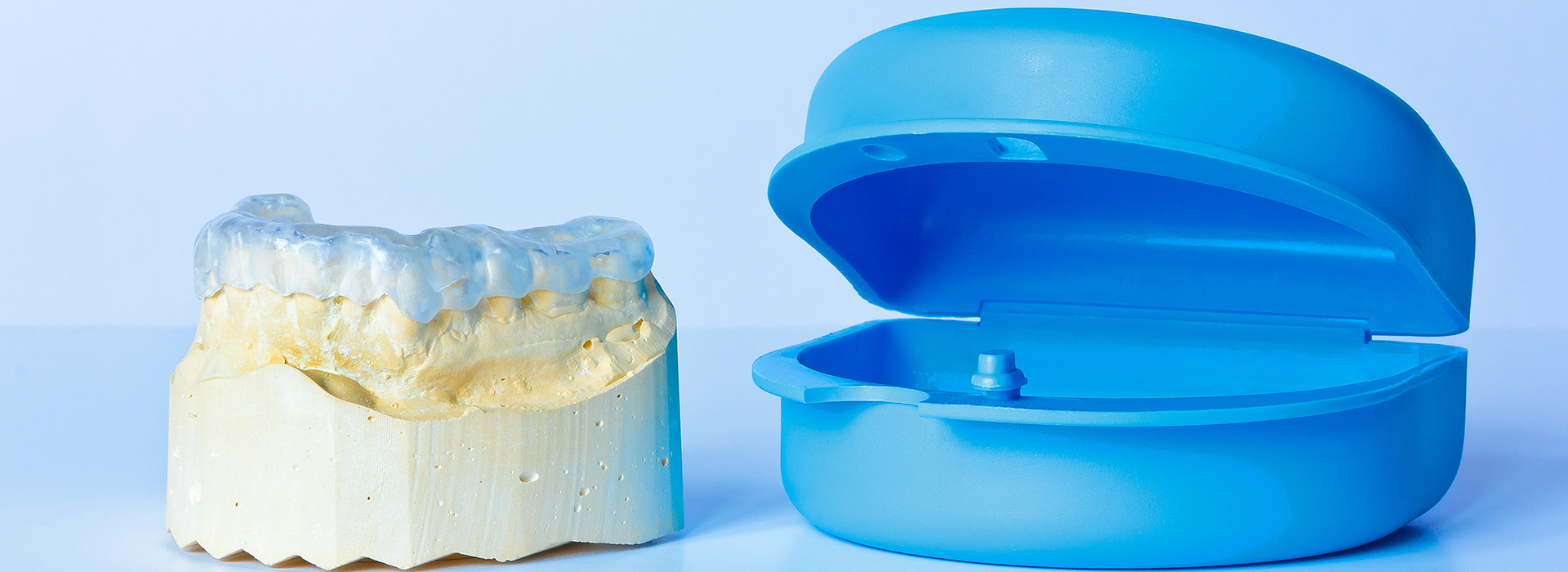
Bruxism is the medical term for habitual teeth clenching and grinding. For many people these behaviors happen unconsciously during sleep, and they can produce a variety of symptoms that signal something is wrong — morning jaw stiffness, recurring headaches, worn tooth surfaces, and sensitivity that seems to come from nowhere. Left unaddressed, the repetitive forces generated by grinding can lead to cracked restorations, flattened biting surfaces, and chronic muscle tension.
Multiple factors contribute to bruxism. Psychological stress and anxiety are commonly involved, but physical elements such as an abnormal bite, missing teeth, or dental misalignment can increase the tendency to grind. Sleep-related conditions — for example, certain breathing or movement disorders — may also make nighttime clenching more likely. Because bruxism often has more than one trigger, a careful evaluation helps determine the most effective approach.
Recognizing the signs early matters because the damage accumulates gradually. Patients may not notice tooth wear until it is advanced, so clues from jaw pain, disrupted sleep, or dental sensitivity should prompt a professional assessment. Early intervention can reduce long-term dental problems and improve overall comfort and sleep quality.
A night guard is a simple, noninvasive appliance worn over the teeth during sleep to interrupt the damaging contact caused by grinding. Rather than stopping the habit instantly, the guard creates a protective barrier that absorbs and redistributes the forces exerted by the jaw muscles. This reduces direct tooth-to-tooth contact and lowers the risk of chips, fractures, and excessive wear on both natural teeth and restorations.
Beyond protecting hard tissues, a properly designed appliance can ease muscle strain and lessen pressure on the temporomandibular joints (TMJ). Many patients report reduced morning soreness and fewer tension headaches after consistent night guard use. By changing how the teeth meet and how force is applied, these devices help the jaw operate more comfortably through the night.
It’s important to understand that a night guard is a protective tool rather than a cure for every underlying cause of bruxism. When combined with a broader treatment plan — such as stress management strategies, dental corrections, or coordination with a sleep specialist — a night guard becomes an integral part of successful, long-term care.
Night guards come in several designs and materials, each suited to different patterns of wear and clinical needs. Soft appliances are flexible and can be comfortable for mild clenching, while hard or dual-laminate guards offer greater durability for heavier grinding. Full-coverage designs protect all teeth in an arch, whereas partial or anterior-only guards focus on front-tooth contact; the choice depends on the patient’s bite, existing restorations, and how forces are distributed during sleep.
Choosing the right design is a clinical decision. A dentist evaluates the severity of bruxism, the presence of crowns or implants, and the patient’s chewing patterns before recommending an option. The primary goals are to preserve tooth structure, protect dental work, and reduce strain on muscles and joints — not simply to provide a one-size-fits-all solution.
For patients who have concurrent sleep issues, such as suspected sleep apnea, coordination with a physician is important because certain oral appliances can affect airway dynamics. Your dental provider will consider medical history and sleep symptoms when selecting an appliance and may recommend additional testing or referrals if needed.
When a night guard is recommended, the process begins with a comprehensive examination to document wear patterns, check for signs of TMJ stress, and assess overall oral health. This exam informs the design of the appliance and ensures it addresses the patient’s specific needs. Modern workflows may use traditional impressions or digital scans to capture an accurate model of the teeth, and that model guides the fabrication of a custom-fitting guard.
Custom devices are crafted to provide an intimate fit and stable contact between the teeth and the appliance, which improves comfort and function. Once the guard is delivered, a short adjustment period helps fine-tune the fit so that the appliance sits securely without creating new pressure points. Routine follow-up appointments let the clinician verify performance and make small corrections if the patient notices any rubbing, soreness, or looseness.
Proper home care prolongs the life of a custom night guard and preserves its protective qualities. Patients are typically instructed to rinse the appliance after use, clean it gently with a soft brush and non-abrasive cleaner, and store it dry in a ventilated case. With periodic professional checks, a well-made night guard can function reliably for months to years depending on the pattern of wear.
Adjusting to a night guard often takes a few nights to a few weeks. Some patients notice immediate relief in jaw tension and sleep-related symptoms, while others experience gradual improvement as the jaw muscles adapt. Minor awareness of the appliance is normal at first; if discomfort persists beyond the initial adaptation period, a follow-up visit is important to address fit or bite issues.
Routine maintenance is straightforward. Avoiding abrasive toothpaste or hot water when cleaning preserves the material integrity, and regular visual checks help spot cracks or thinning before they compromise protection. Chewing on the appliance or using it as a fidget object accelerates wear and should be discouraged. If a guard becomes damaged or no longer fits well, replacement is recommended to maintain effective protection.
Knowing when to return for care is part of using a night guard responsibly. Contact the office if you experience increased pain, changes in bite, new tooth mobility, or if the appliance shows signs of significant wear. Periodic dental evaluations will track how bruxism is affecting the mouth and ensure the chosen appliance continues to meet clinical goals.
In summary, a night guard is a practical, evidence-informed option for reducing the harm caused by nighttime grinding and clenching. A tailored approach — beginning with a thorough assessment and including a properly fitted appliance, follow-up adjustments, and straightforward home care — helps protect teeth, relieve muscle strain, and improve sleep-related symptoms. If you have questions about whether a night guard is right for you, or want to learn more about our process at the office of Murphy Dentistry in Loxley, please contact us for more information.

Taking the next step toward your ideal smile is simple. Whether you're ready to schedule your appointment or simply have questions about our services or treatment options, our friendly staff is here to help.